
Kon Trubkovich
“When, in the summer of 1953, that is, still during my university studies in Bonn, I read a recently published lecture by Heidegger from the year 1935, the Introduction to Metaphysics, the jargon, the choice of terminology and the style told me at once that the spirit of fascism was manifested in these motives, thoughts and phrases.”
Jurgen Habermas
(conversation with Michaël Fœssel)
“If we tried to establish the political doctrine that rises from Heidegger’s fundamental ontology, we might conclude that it is fundamentally totalitarian. In Heidegger’s philosophy, all social spheres are alienated from man and are but the means for man’s integration into the ruling order. Man does not create the world, he is “in the world”; he does not create history, he is “in history”; he does not create a language, he is “in the language”… Heidegger does not offer freedom to man; he offers him “eternity” in the shade of “Being”– provided he pledges unquestioning loyalty to the ruling order, which deprives him of everything that makes him human. Heidegger embalms man. Deprived of any humanness, man travels to “eternity” as a mummy.”
Ljubodrag Simonović
“At the root of this (official discourse) is an overwhelming need to control meaning. America can’t let the world speak for itself.”
Charlotte Raven (The Guardian, Sept. 18th, 2001)
“Given the significant attachment of the philosopher to the climate and intellectual mood of National Socialism, it would be inappropriate to criticize or exonerate his political decision in isolation from the very principles of Heideggerian philosophy itself. It is not Heidegger, who, in opting for Hitler, “misunderstood himself”; instead, those who cannot understand why he acted this way have failed to understand him. A Swiss professor regretted that Heidegger consented to compromise himself with the “everyday,” as if a philosophy that explains Being from the standpoint of time and the everyday would not stand in relation to the daily historical realities that govern its origins and effects. The possibility of a Heideggerian political philosophy was not born as a result of a regrettable “miscue,” but from the very conception of existence that simultaneously combats and absorbs the Zeitgeist.”
Karl Lowith

Paul Winstanley
In 1947 Siegfried Kracaur wrote a book called From Caligari to Hitler; A Psychological History of the German Film. It was a study of German cinema and the rise of fascism, the volkish sensibility connected to themes of homeland and race purity. Anton Kaes wrote a book in 1992 titled From Hitler to Heimat. Both are expressing a belief in the social importance of not just film, but culture and art. And both are examining memory, and the irresistible tenacity of repression and humankind’s apparent failure to not contribute to their own oppression.
There are increasingly obvious returns to 1930s style Fascism in the politics of the West today A quick survey includes in Hungary the Fidesz Party of Viktor Orban, and it alliance with the openly fascist Jobbik. In Italy the Casa Pound Italia, in Belgium Vlaams Belang who have open ties to WW2 Nazi collaborators, and in Bulgaria there are now two openly fascist parties, Ataka and The Patriotic Front (note: whenever the word patriotic is used, or freedom, in a title or any organization, it is for all intents and purposes fascist), though neither has much power yet, and in Denmark there is the Danish People’s Party with close to 30% of the vote. In Norway the far right anti immigration racist party FrP is now in the government, and of course there is Ukraine, and Greece. And in Poland the once laughable Law & Justice Party, led at one time by the curious waddling spectre of the Kaczinski twins is now running the country under the symbolic figure of Beata Szydlo, but actually controlled by the remaining living twin and honestly I forget which one he is. And who cares anyway.
Embedded in the political or ideological positions is an aesthetic current that is inseparable from the position. There can be no Donald Trump, and no Hillary Clinton without, in different ways, the creation of a social frame that allows them to play the roles they have created. And this is not just true in the very obvious Hollywood military films or TV cop dramas that serve as propaganda, but it is alive and more deeply installed in the very fabric of narrative and image recognition of the public. And in thinkers, as well. Just as it was no accident Heidegger gradually but inexorably veered toward a volkish mythology of personal overcoming — through a construct of the *people* (sort of neo-Nietzschean elect), and a genuinely elitist disdain for anything not aristocratic (this latter was obscured, partly, by the mysticism of his thinking. The insights of his early philology are not really free of this subtle elitism, even if they were sophisticated readings) it is no accident that University courses favor the likes of Rawls and Rorty for the most part (in the U.S.) and that most people ascribe to lay pablum bestsellers. These are neutralizers, culturally.
Heidegger set in motion the forces of a controlled irrationalism. Heidegger’s actually often sophisticated philology is more than can be said, actually, for today’s obscurantist popularizers of the new digital age fascism. In a sense, though, Heidegger was laying the groundwork for what would allow a popularized magazine level entertainer like Zizek to be called a *towering figure on the left* (I forget, actually, where I read that, but such sentiments abound). Controlled irrationalism would be a kind of repressive de-sublimation but on a mythic level almost. It’s also a bit like Nixon’s idea of a limited hang out. But a psychoanalytical limited hang out.
The same people who criticize (in an effort to reform) Capitalism because it is *Crony Capitalism*; as if there were ever anywhere in the giant Universe a version of Capitalism that was not by definition crony, are the ones embracing a new reduced calorie form of critical thinking. Capitalism must become crony capitalism. That is it’s logic.

Artem Volokitin
One of Zizek’s comments was that Lacan showed *the impotence of reason*. Well, no, that’s not what Lacan said or showed. Zizek by the by was schooled by Jacques Alain Miller, who married Lacan’s daughter. In any event, the problem with all of these new populist thinkers (sic) is that they default to positions consistent with the status quo. Crony capitalism is not unlike what Zizek suggests are the *four horsemen of the coming apocalypse* (the worldwide ecological crisis; imbalances within the economic system; the biogenetic revolution; and exploding social divisions and ruptures). For all four are really the result of a Capitalist system, a system in which private theft of socially created wealth is built into it, and which exploitation is fundamental. The four are only one and if Zizek had actually ever read Marx he would know that. Class struggle is removed, too, because, well, I’m not sure really, except that Zizek sees the proletarian worker in isolation (which is what he labels a MORE radical proletarian).
What popularizers of serious work actually do is to neutralize and sterilize the radical content of any particular writer or artwork. Lacan’s main thrust, his sensibility if you like, falls under the phrase l’expérience psychanalytique, which is best translated as ‘psychoanalytic experiment’. For Zizek, and a host of others, Lacan becomes a means to introduce adolescent poop jokes, and then through a weird psychoanalytic lens itself, a kind of release of racist and stigmatizing values.
“Zizek maintaining that class war is not “a conflict between particular agents within social reality: it is not a difference between agents (which can be described by means of a detailed social analysis), but an antagonism (‘struggle’) which constitutes these agents.” It is therefore ultimately subjective – just the opposite of what Marx and Lenin held.”
Thomas Riggens
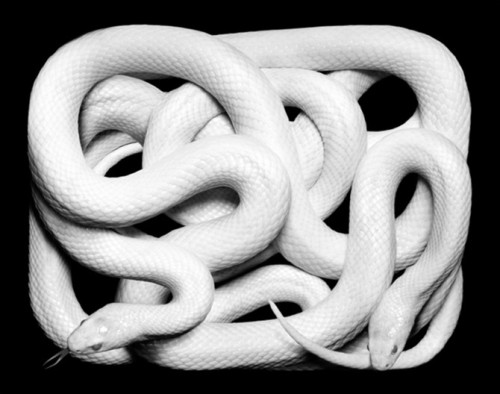
Guido Mocafico, photography.
It is important when trying to approach Lacan, the actual Lacan and not the mystified pop Lacan (I could have written poop Lacan, as a sort of bit of Freudian meta humor), to remember that he is really commenting on Freud. And then to realize that Freud was more radical and speculative than he is usually given credit for (or these days, dis-credit). Samuel Weber is the best reader of Lacan one can find, and of a good many other thinkers. Certainly in English.
In an interview Weber said….“Nietzsche, who together with Kierkegaard placed the question of repetition, recurrence, Wiederkehr on the agenda –; Nietzsche writes somewhere that with passing years one finds oneself returning to certain questions that seem to change very little over time. These questions, which function as a kind of bedrock of identity, are more difficult to ‘lose’ than to retain. Whether this ‘bedrock’ becomes a source of strength and discovery, or a prison, depends on how those questions ‘return’: whether they primarily only ‘determine’, in the simply restrictive sense of setting limits, or, whether, the limits they trace gesture towards a space not simply contained within the area they demarcate. This is one of the reasons why a sense of the ‘uncanny’ –; indeed an openness to it –; is indispensable, if one is to avoid the kind of entropy that a purely obsessive recurrence would entail.”

Sara-Vide Ericson
This is hugely important I think. For Western society today is ‘returning’ to a number of themes, and ideologies, and sensibilities that had been officially put to bed. Officially retired. And Heidegger and Zizek are both emblematic of the ways in which the officially retired return, and in so doing reveal the fact that there never IS any actual retirement. People often say that the U.S. is today living the Reagan dream. Or in the U.K. the Thatcher dream. Meaning nightmare, of course. But in fact Reagan was the mouthpiece for the return of a kind of fascism seen in the 1920s and 1930s, and most certainly was the product of the strange almost uncanny coup of 1963. And Reagan was the perfect *staging* of the recurrence. A B-list actor and pitchman, disliked by the Union he ran (Screen Actors Guild) and informant for J.Edgar Hoover, he became the President most responsible for inflicting mass violence on Latin America and for a domestic war on black communities through both housing policy and his prioritizing (what he called) *reverse discrimination*. He was a kind of avatar for the negative repetition to which Weber alludes, and the first fully scripted Presidency. That Reagan had trouble distinguishing reality from the roles he played in film and TV made him rather perfect as the first post modern politician.
Reagan was also racist to his core. His adored the South African apartheid government and one of the less told stories (almost untold) was US covert missions across southern and central Africa under Reagan. The return of a colonial dream occurred in the astrology and Alzheimer addled brain of this midwest bumpkin. Freud believed that dreams were a form of thought. And one feature of dreams is that they are overdetermined; meaning that multiple wishes are sedimented in the dreamwork — “For any particular dream there is a manifest and a latent content, and yet this content is not the essence of the dream qua content, but only its material. Furthermore, as a result of the characteristic overdetermination of dreams, the wish realized in it is itself enmeshed in a network of other wishes, among which the infantile ones are the most decisive. This gives the ostensibly original text the character of a palimpsest, superimposed upon other texts that are both referred to and effaced by it.”

Shirazeh Houshiary
The individual never fully escapes the child. The narcissism of the child is left behind, but the society is complicit, in a sense, with the narcissistic dreams of the child. The unconscious then is a discourse of non-identity. But, it is not ever not our discourse. And this seems rather important, I think.
“Thus, to construe the significance of Lacan’s writings
primarily in terms of the meanings his words convey, however
sensitive one may be to their connotations, is to practice reading
in a manner that inevitably presupposes the priority of the
signified over the signifier, even (and often especially) where
one explicitly proclaims the contrary thesis. The form of the
“thesis” as such, i.e. as a proposition, assertion or statement,
inevitably subordinates the differential relation of signification
to its significant “payoff,” as the Pragmatists used to call it.
It is just this payoff, however, that Saussure, Freud and Lacan
seek to problematize.”
Samuel Weber
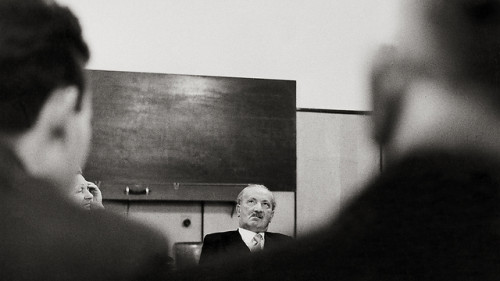
Martin Heidegger
What interests me here is less the misreadings of Lacan, than to see the implications of his thought as the experiment that it was. Lacoue-Labarthe and Nancy accused Lacan of favoring or privileging metaphor. Meaning that he created a metalinguistic stage for his own theory. This is more complex than I do justice to, here. But the point is that to take Lacan seriously means accepting the enormity of his project and its complexity. But in a sense, Lacan was prioritizing metaphor. And I think this is what he found in Freud.
“Silence itself–the thing one declines to say, or is forbidden to name, the discretion that is required between different speakers–is less the absolute limit of discourse, the other side from which it is separated by a strict boundary, than an element that functions alongside the things said, with them and in relation to them within over-all strategies.”
Michel Foucault
Foucault said something else about the shroud of silence in Germany after 1945. And then posited that at some point something would come of that silence. And he said we look to that with some trepidation. Today, Donald Trump is the voice of repressed material. He is three things that are all essential to this role he is playing: first, he is not an intellectual and not articulate, and two he is rich, and three he is white. Full stop.
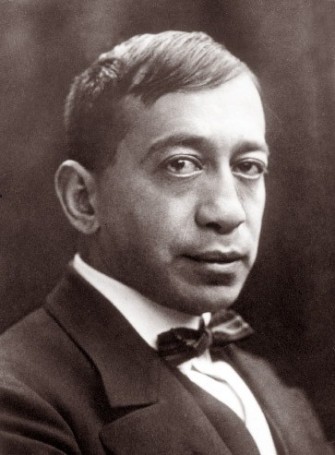
Sigfried Kracauer
For that is it, a rich white anti intellectual with openly self embraced bad taste, Trump valorizes half the white men in America for their seeming failures. He is saying, ok, you are not rich like me, but the rest, yeah we are one. But Trump has no role without his co-star, Hillary Clinton. Hillary is the cliche woman who is overbearing, petty, resentful and spiteful, but also functions as a female destroyer. And that role is complex, here. Hillary is not the purifying force of Kali, she is not the forest fire that brings regeneration. No she is simply the electric chair with a short, a sadistic contraption of flawed construction that terrorizes and disseminates suffering and cruelty. And while I have thought it impossible that Hillary doesn’t win this dog and pony show, it is now becoming apparent that Trump is the candidate of masculine revenge. Every misogynist looks to Mr Orange Hair to get even. And that misogyny is interlaced with race and colonial memory. And this is where the importance of Heidegger and Schmitt looms. And it is where the rising tide of left liberal antisemitism appears alongside peak Islamaphobia. It is all of a piece, in a sense.
“It has the odor of tainted food. It leaves
a taste of cinders in the mouth.”
Amiguet (review of Cabinet of Dr. Caligari, 1921)

Sidsel Meineche Hansen
Kracaur wrote that…“What films reflect are not so much explicit credos as psychological dispositions-those deep layers of collective mentality which extend more or less below the dimension of consciousness.” Kracaur saw film’s importance, its special qualities culturally, in the fact that the work was created cooperatively, and for a mass anonymous audience. Whether one fully accepts this or not, I would say that film certainly has embedded in it a significant amount of the social collective sensibility of the nation that produced it. It was Christa Wolf the great East German critic who suggested that memory traces are organized in our brain primarily at night, while we dream. Dreams and memory are of a piece. And film is the medium closest to dreams. So, Kracaur is right when he sees in film a repository of cultural memory and values. Horkheimer wrote of the opposing forces in Germany, to Hitler’s rise…citing “their inability to evaluate correctly the psychological factors and sociological trends operating among German workers . . . .” In the U.S. today there is a delusional quality to the mass thought of what is left of the professional class. Their pretensions to affluence, mostly illusory, blinds them to the mechanisms of their own oppression. Kracaur pointed this out in shopkeepers and artisans in Germany in the early 1930s, “Their surrender to the Nazis was based on emotional fixations rather than on any facing of facts.”
Remember it was Reagan who laid a wreath at Bitburg in 1985, where only Nazis were buried.

Michael van Ofen
Tom Rockmore wrote of Heidegger…“What Heidegger did was to give philosophical seriousness, professorial respectability, to the love affair with unreason and death that dominated so many Germans in this hard time.”
There is no Trump & Hillary show without Reagan. Nor without Schwarzenegger, whose roots tie in directly with National Socialism. That Arnold was so easily integrated in U.S. power speaks to the latent symbols of irrationalism and Death.
“What is clearly the essential content of the dream-thoughts need not be
represented in the dream at all. The dream is, as it were,
centered from the dream-thoughts — its content has different elements
as its central point.”
Freud

Reagan and Kohl, Bitburg 1985.
This brings us back to Lacan and metaphor. In dreams a single image or idea can serve as the center for multiple associative linkages. This image or idea is what brings together the cathexis of these linkages and this occurs with latent dream material and repressed material (wishes). So a primary feature of dreamwork is condensation and overdetermination. What is difficult here is the exchangeability (per Weber) of representations which excludes other ideas or images. But those exclusions eventually return in some fashion. Freud himself was undecided, finally, about the character of displaceability. And this because of the nature (as Freud saw it) of drives. And this is the heart of the issue of artistic expression and metaphor. Here is a very dense paragraph from Weber, but one that touches on the core issues…
“Perceptual identity, the condition of all ideational content,
shows itself to be in turn an effect of a process of repetition based
on a fortuitous encounter: on contact and contiguity. The place,
however, that makes contact and contiguity possible — the place,
where such an encounter takes place — is itself determined not
by the “quality” or identity of the elements encountering each
other, but rather by the “quantitative” variations in tension, that
is by the ‘differential’ relations that constitute the pleasure (or
more precisely: unpleasure) principle. What Freud attempts to
retrace in his account of the formation of “perceptual identity,”
is thus nothing other than the determination of the signifier.”
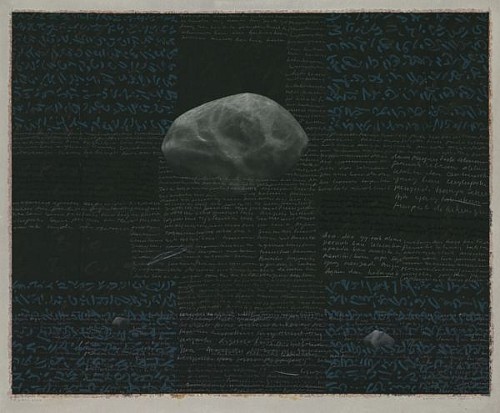
Jumaldi Alfi
In hieroglyphic script (and the Egypt of the Pharaohs was a culture fixated on memory) there are determinants — signs that serve to point toward an explanation elsewhere. In dreams many of the ideas or images serve that purpose. Lacan focused a good deal of attention on the structure of the unconscious. A written structure, as he saw it, and as Freud saw it. So much that is attributed to Lacan is already there in Freud. The relevance here is that social memory, or collective memory can work the same way. Heidegger’s hermetic style and his hostility toward other philosophers is reenacted as Reagan’s nearly literal sleepwalking through the Presidency, his naps and his astrological influenced wife. The irrational is closed off to the human.
The final conclusion is impossible because it is never final. The displacement, the shifting contexts mean that nothing is permanent in the interpretation. The very center of the dream no less than the periphery cannot be closed. And the artificial closure achieved, partially, by repression, by denial, only results in an accelerated repetition of these functions. And in this infinite expansiveness, Lacan saw the deeper truths of Freud. That psychoanalytic discourse is, finally, very close to something like Vedic philosophy. Or Buddhism. And that metaphor is a kind of key, a clue to be deciphered, partially, only to find the process of deciphering has created new clues. That was the puzzle, the rebus, the sense of relieving pain was to submit, not treat symptoms.
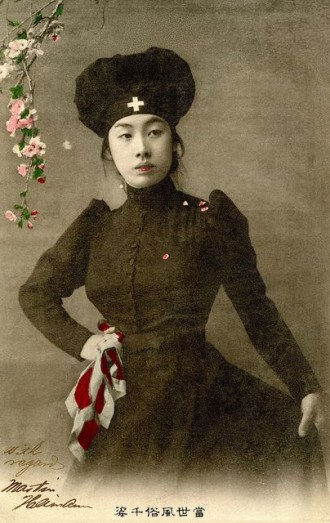
Japanese nurse, postcard. 1905.
“Even in the best interpreted dreams, there is often a place that must be
left in the dark, because in the process of interpreting, one notices a
tangle of dream-thoughts arising, which resists unravelling, but has
also made no further contributions to the dream-content.”
Freud
The question of ‘for whom is the repressed wish for’ haunted Lacan. It was a question Freud raised originally.
“I am not, wherever I am the plaything of my thought; I think of what I am, wherever I do not think (that I am) thinking.” Jacques Lacan.
In other words, the Western tradition that runs through Descartes is the insistence upon an *I*. And yet, most everyone knows it is a mirage (Lacan’s word). Not to think I am thinking is to *think*, to be what I most am. This is very close to Artaud, and likely part of what Derrida found so fascinating in Artaud. And it is theatrical. This is the essence of performance on stage. The *actor* is not being himself but a character, and speaking the words of another. And yet, his performance is also memorized, and the actor ‘thinks’ about his performance as he or she *acts*. This is the great and obvious pull of theatre as a metaphor. For Lacan the idea of all psychological activities being staged, or predicated upon a staging, was highly appealing. But as Raymond Geuss has pointed out, the notion of what do *I* mean is rather recent. Early man looked to survive, not establish meaning. And yet…there is always meaning, even for that hunter about to be eaten by the woolly mammoth. Now, Heidegger’s essay on the origin of the work of art comes perilously close to these conclusions. Heidegger the totalitarian elitist anti-semite, was not a vulgar thinker. And therein lies his insidious power. Lukacs critique of Nietzsche for example, is one that probably more harmful than not. For I suspect my definition of irrationalism is not Lukacs. Heidegger is dangerous because of the elegance with which he presented a kind of exterminationist ethos. He was the Ahab of 20th century philosophy. And Ahab was supremely seductive. And one of the truths of contemporary political theatre is the banality of the script. Even Nixon looms in the rear view mirror as vaguely Shakespearean in comparison with Bill Clinton, or Hillary or the Donald. And it is exactly this banality that is the nodel point for the dark dream of fascism’s return. It does not return as Hillary’s e-mails or Trumps thuggish crowds, but in the absolute triviality of the staging. All U.S. presidents are horrid Imperialists, and all do something akin to those e-mails, but in a register of more aesthetic complexity. The foreclosed human, that force of closing down the imagination, *that* is the real legacy of Heidegger and Hitler and Mussolini. Nobody will read Hayak in twenty years, but they will read Heidegger. Nobody will read Zizek but they will read Lacan. These things tilt in both directions.

Rogier Van der Weyden (Descent from the Cross, detail. 1435)
Heidegger’s parents were relatively poor tradespeople. He grew up in the Catholic region of southern Germany. An already xenophobic and economically difficult area of Swabia, the Russian Revolution loomed as a foreign threat where in other parts of Germany it provided inspiration. But not in Swabia. Heidegger applied to seminary school, but changed his mind to pursue academic studies in Konstanz. This is the milieu out of which Heidegger came. Peasant, impoverished, archly Catholic and deeply mind numblingly reactionary. Heidegger was an early signee to the Nazi Party. Now, he was also a somewhat isolated and introverted rural rube. Heidegger also, like Reagan, was a born snitch. He turned in several former colleagues to the Nazi hierarchy. Not to mention his treatment of his former teacher Husserl. Heidegger eventually lost faith in the Nazis, but perhaps only because they failed to give him the attention he felt he deserved. His distancing however took the form, philosophically, of an ever more inward mystical turn. And his interest in the pre-Socratics intensified, and a belief that everything after Plato was just (sic) metaphysics. In some ways it is useful to see Heidegger as this Swabian rube alter boy with a natural attraction for Christian mystics. Like Saint Paul or Theresa of Avila, the Heideggarian subjectivity is an idealized ontic fantasy, essentially. For the Christian mystical tradition, going back to the Desert Fathers, through Anselm and Benedict, is one whose subjective struggles are treated as meditations for use in the practical course of daily life. In all Christian mystics and monks there is a giving away of the world to find the world. So, in comparison with Heidegger’s dark clutching of the material world, St Francis or Abeldard, even, seem quite self sacrificial — but Holy. And I might argue the greatest failing of Heidegger’s thought is his basic compulsive fanaticism about a hierarchy of elect, of a superior grounded subjectivity, one that murders the Holy. He is the Christian Nazi assassin of Satori.
As S.J. McGrath puts it, “The most striking difference between Heidegger’s resolute anticipation and Christian mysticism is the absence of love {agape}.”
St. Paul icon, Russia, early 20th century.
“Does the soul find herself or not? To this I will answer as it appears to me, that the soul finds herself in the point where every rational being understands itself with itself. Although it sinks in the eternity of the divine essence, yet it can never reach the ground. Therefore God has left a little point wherein the soul turns back upon itself and finds itself, and knows itself to be a creature.”
Meister Eckhart
In some sense, then, the irrational forces unleashed by Heidegger, or unleashed anew, were and are the ones of conscious willful obscurantism and hierarchy. And this is also a sort of thematic center for this discussion; for it is that radical eccentricity (Lacan’s term) of our *self* that remains after all analysis. I repress my wish because *I* don’t enjoy it. But how do *I* know? Who is repressing and for whom? It is interesting that Meister Eckhart should call forth an image of a little *point*, for that is punctuation, the punctum, of Freud and Lacan. The period at the end of the sentence.
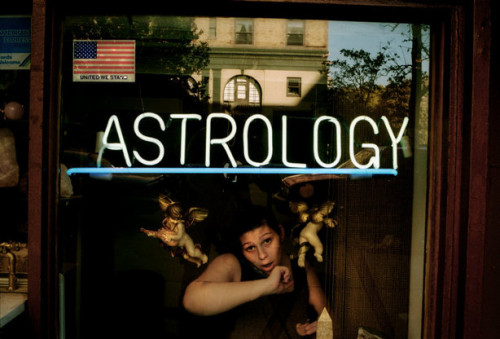
Alex Majoli, photography. NYC, 2001.
The older one gets the more often one forgets things. And yet, the more we know. I know more than I knew at twenty, more than at thirty, or forty. But in this system, under Capitalism and a society of controls and domination, the natural ‘instinct’ is to withdraw. Or, some part of you withdraws. And you forget what is in front of you while remembering things you are not sure are your memories. One aspect of the tragedy of contemporary life is that Heidegger’s mystifications contain a truth. Even if only in form. For his is the same trajectory as that of Lacan, of Adorno, and Wittgenstein. And probably in a way it is the trajectory of all mystical sects.
“For Jesus is the one referred to in the Scriptures, where it says, ‘The stone that you builders rejected has now become the cornerstone.'”
Acts 4: 11
The larger reality is that Habermas is right when he says that the spirit of fascism lives in Heidegger’s work. Heidegger is the false mystic, the quality of humility is erased. The spirit of punishment prevails. As McGrath says, “Authentic Dasein does not carry the burden of others”. No the sherpa do that, the Untermenschen.

Markus Lupertz
In Lacan, the language is that of a dream, or as Weber says, ciphers IN a dream. That was the project. The other aspect of fascism, as Pasolini knew well, is the sexual distortions. But allow me a slight digression here. David James Fisher, writing on Ernst Simmel, perhaps the single most neglected psychoanalyst from the original Berlin group…
“Simmel proposed that anti-Semitism was a mass psychosis, akin to a paranoid form of schizophrenia; he characterized the illness as one which unleashed the instinctual forces of primitive hatred and destructiveness, with the ultimate goal of massacring Jews. Jew-baiting was equivalent to Jew-biting, which psychodynamically stems from archaic tearing and orally devouring tendencies. Anti-Semites were driven by a loss of reality, a break of the ego, and the conversion of illusory ideas into delusions. Anti-Semitism was fueled by the forces of projection and denial, all resulting from a splitting of the ego, particularly prevalent in the mass mind. The collectivity regarded the Jews as the personification of the devil, the symbol of all civilization’s evil, the epitome of degeneration and decadence.”
Heidegger was of course going to identify with Hitler. Erik Erikson’s analysis of Hitler’s youth pointed out his ‘delinquent adolescence’. The thousand year Reich is a teenage boys compensatory fantasy of aggrandizement. The sexual aspect was best analysed by Reich of course. And one of the most distressing aspects of contemporary culture is that so many of the new faux left exhibit tendencies of pettiness and rivalry and aggression against even their nominal comrades and friends. The dislike, for example, of much modern art — abstract expressionism, feels uncomfortably like resentment toward potency. The erotic power of those paintings must be neutralized, and domesticated and brought into line. And in this context the Puritanism default position is realism. Realism is always touched with a vaguely masculine quality, and hence more comforting for the threatened personality. That is a rather extreme example, perhaps, but I see it a good deal in social media as well. A tone of aggression. Defensiveness and ire, and something that feels as if that road to the expansiveness of awakening is being pinched shut. A kink in the lawn hose of cathexis. And Zizek, of course, enters here with his delinquent adolescent reading of Lacan. There are more connective issues as well; the rise of a performative culture of narcissism. Exhibitionistic but increasingly puritantical. Schools are now blighted with bullying, an epidemic of cyber bullying and shaming. The mass culture of screen life is narcotic in its effects.

Julien Felix, photography.
There is nothing in Heidegger, finally, that leads out of instinctual repression. For all his insights and at times quite startling readings of early Greek thinkers, his is a philosophy of sustaining class structure. And this is Reich’s reading of all repression, after all. So perhaps Reich is the perfect analyst for Heidegger. In any event, Lacan, much attacked, premises his entire project on finding a way out of that repression. And yet, I see leftists often with heightened disdain for Lacan. And maybe I need to blame Zizek, but probably its more than that. But then Reich himself was kicked out of the Communist Party. Then sent to prison by the Capitalists. This is the disturbing cunning of unreason.
“…what his texts give voice to and in a certain sense “stage” is not simply something represented, an object that would be self-identical, but is itself representation, translation, staging. The “object” of Lacan’s entire theoretical discourse, its “sense,” entails a mode of articulation which might best be described as a slip-up” or derailing of sense: the language of the unconscious, the unconscious as language.”
Samuel Weber
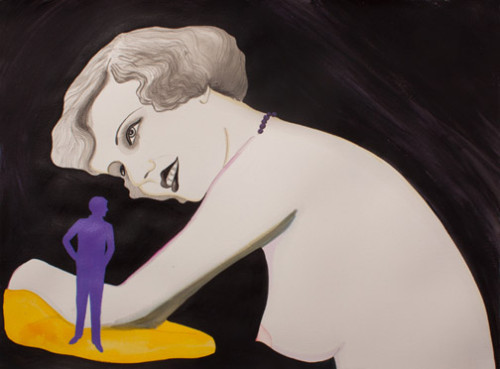
Caris Reid

Speak Your Mind